When the scorching heat waves roll in, the last thing you’d want is a powerless pool pump. So, if you also ask what size generator is needed to run a pool pump, a 2,500W to 3,500W generator is usually sufficient to operate standard residential pool pumps when considering both its running and starting wattage requirements.
Whether you own a standard 1 HP pump or a ¾ HP version as part of your essential home backup system, consistent power for your pool pump and other appliances is necessary. That’s where backup generators come into play. Jackery Solar Generators are scalable, portable, and efficient systems that can deliver sufficient wattage to keep pool systems running without relying on the grid.
Key Takeaways
- A standard pool pump typically requires a 2,500-watt or 3,500-watt generator, depending on horsepower and startup surge requirements.
- Surge wattage can be 2 to 2.5 times higher than running wattage, making it critical to size your generator with sufficient buffer to avoid overload.
- Jackery Solar Generators offer reliable, clean, and silent alternatives to traditional fuel-based generators and can become an important part of your essential home backup system.
- The right generator ensures uninterrupted pool filtration, protects water quality, and provides peace of mind during power outages or off-grid living.
How Many Watts Does a Pool Pump Use?
The power consumption of a pool pump depends on several variables, including the horsepower (HP) rating, voltage, and usage duration. On average, a standard residential pool pump consumes between 800 to 2,000 running watts, but the total wattage required can briefly spike during startup due to surge wattage.
For instance, a ¾ HP pool pump typically runs around 1,000 to 1,500 watts, while a 1 HP pump may require 1,500 to 2,000 running watts. However, during startup, most pool pumps experience a surge wattage 1.5 to 2.5 times higher than their running wattage.
To understand what size generator is needed to run the pool pump, here are the estimated wattage requirements for the pool pumps:
|
Pool Pump Horsepower |
Typical Running Watts |
Estimated Surge Watts |
Recommended Generator Size |
|
0.5 HP |
800W - 1000W |
1500W - 2000W |
2000W - 2500W |
|
0.75 HP |
1000W - 1500W |
2000W - 3000W |
2500W - 3000W |
|
1.0 HP |
1500W - 2000W |
3000W - 4000W |
3500W - 4500W |
|
1.5 HP |
2000W - 2500W |
4000W - 5000W |
4500W - 5500W |
|
2.0 HP |
2500W - 3000W |
4500W - 6000W |
5500W - 6500W |
*Actual wattage may vary based on pump brand, age, efficiency, and local voltage conditions. Refer to the manufacturer’s specifications.
How Much Energy is Needed To Run A Pool Pump
To understand how much energy is needed to run a pool pump, you need to consider both the power ratings and the duration of daily usage. Most residential pool pumps run 6 - 12 hours daily during heat waves or summers.
Here’s a rough estimation of different pool pumps operating for different hours:
¾ HP Pool Pump (Running at 1,200W for 6 hours a day)
- Daily Energy Usage: 1,200W x 6 hours = 7.2kWh/day
- Monthly Energy Usage: 1,200W x 30 = 216kWh/month
2 HP Pool Pump (Running at 2,800W for 10 hours a day)
- Daily Energy Usage: 2,800W x 10 hours = 28kWh/day
- Monthly Energy Usage: 28kWh x 30 = 840kWh/month
Types of Generators Suitable to Run a Pool Pump
Before finalizing what size of generator to run the pool pump, you can even consider different types of generators that you can use. Here are a few ideal options to operate a pool pump:
Solar Generator for Pool Pump
Solar generators have gained popularity among homeowners who look for silent, clean, and maintenance-free backup power for indoor and outdoor activities. Solar-powered generators, like the Jackery Solar Generator 5000 Plus, are ideal for daytime pump operations and can even be carried to outdoor locations to use variable-speed models.
Inverter Generator for Pool Pump
Inverter generators provide clean, stable electricity that is ideal for sensitive electronics. They allow you to adjust engine speed based on load requirements, which results in better fuel efficiency. A high-wattage inverter generator can be a reliable option for residential users running a 0.75 HP or 1 HP pool pump.
Diesel Generator for Pool Pump
Diesel generators are ideal for high-demand applications. For instance, diesel generators can provide continuous power if one has a large commercial pool or uses a 2 HP+ pump system for extended hours. However, they tend to be noisy, emit fumes, and require regular maintenance, which makes them impractical for closed compounds.
What Size Generator is needed to Run the Pool Pump?
The most critical part of this process is knowing what size generator to run a pool pump and how to calculate the exact generator size required to run your pool pump. This ensures your essential home backup solution can handle both the continuous power needs and the brief but intense surge during startup.
Step 1: Identify the Running Wattage of the Pump
Look at your pool pump’s specification plate or read the user manual to find the running wattage.
Watts = Horsepower x 746 x Efficiency Factor
Let’s assume 85% efficiency, so the running wattage of a 1 HP single-speed pool pump would be:
Watts = 1 HP x 746 x 0.85 = 634W
However, since most real-world 1 HP pool pumps draw 1,500W to 2,000W, you can stick with 1,500W for extra loads.
Step 2: Calculate Surge Wattage
Most function motors have a surge multiplier of 2x to 2.5x their running load. This surge usually lasts only a few seconds, but it must be considered to account for the sudden spike.
Surge Watts = Running Watts x Surge Multiplier
Surge Watts = 1,500W x 2 = 3,000W
Step 3: Add a Safety Margin
It is highly recommended that you always add a buffer to ensure your backup generator's longevity and load tolerance.
Required Generator Size = Surge Watts x 1.25 = 3,000W x 1.25 = 3,750W
For a 1 HP pool pump with 1,500W running and 3,000W surge, it is recommended that one should select a 2000-watt generator or a larger 3000-watt generator to account for extra loads..
How to Calculate Cost Per Hour Usage of Pool Pump
Once you understand what size generator to run a pool pump, you should also evaluate its cost. The cost will vary depending on multiple factors. Running the pool pump will depend on fuel costs and maintenance charges if you use a backup generator.
To understand the cost of running a pool pump, account for a few parameters:
- A 10kW diesel generator at 50% load consumes 0.53 gallons per hour.
- As per the EIA, the cost of diesel in February 2025 was $3.68 per gallon.
- As of March 2025, the average electricity rate in the United States is $0.1595 kWh.
|
Pool Pump Wattage |
Usage Duration |
Energy Used (kWh) |
Grid Cost |
Diesel Cost |
Solar Cost |
|
800W |
8 hours |
6.40kWh |
$1.02 |
$12.48 |
$0.00 |
|
1000W |
8 hours |
8.00kWh |
$1.27 |
$15.60 |
$0.00 |
|
1500W |
8 hours |
12.00kWh |
$1.91 |
$23.40 |
$0.00 |
|
2000W |
8 hours |
16.00kWh |
$2.55 |
$31.20 |
$0.00 |
|
2500W |
8 hours |
20.00kWh |
$3.19 |
$39.00 |
$0.00 |
The above cost estimation shows that if you use a 2 HP pool pump (2500W) on your grid power, it will have an impact on your electricity bill. However, if you use a diesel generator, it will cost you $39. Imagine using the same pool pump every day for four summer months. It will cost you roughly $156.
If you don’t want to pay hefty maintenance charges in addition to the purchase price, you can check out solar-powered generators from Jackery.
Jackery Solar Generators to Run Pool Pump
Jackery’s line of products includes solar generators, portable power stations, and foldable solar panels. For homeowners who want a plug-and-play backup solution for their pool pumps and other home essentials, Jackery’s solar-powered generators provide a seamless experience.
Jackery Solar Generator 5000 Plus
The Jackery Solar Generator 5000 Plus is built for high-demand applications, making it an ideal choice for powering larger residential pool pumps, including 1 HP and even 1.5 HP models. With a high-rated output and support for surge wattages well above typical startup loads, the Jackery Solar Generator 5000 Plus ensures smooth pump operation without any risk of overload or drop in performance.
Appliance Running Wattage
- Pool Pump (0.5HP/800W) = 5.04H
- Pool Pump (0.75HP/1000W) = 4.08H
- Pool Pump (1HP/1500W) = 2.76H
- Pool Pump (1.5HP/2000W) = 2.09H
- Pool Pump (2HP/2500W) = 1.68H

Customer Review
“The product works great and was easy to install and integrate into my home.” -- Brian K.
Jackery Solar Generator 2000 Plus
The Jackery Solar Generator 2000 Plus is a compact and competent system that suits small-to-medium pool setups, such as 0.75 HP or energy-efficient variable-speed pumps. The Jackery Solar Generator 2000 Plus is lightweight and portable, allowing users to set it up closer to the pump without requiring extension cords or complex wiring.
Appliance Running Wattage
- Pool Pump (1HP/1500W) = 1.14H
- Pool Pump (0.75HP/1000W) = 1.69H
- Pool Pump (0.5HP/800W) = 2.10H
- Microwave Oven (1200W) = 1.42H
- Refrigerator (900W) = 1.88H

Customer Review
“Very easy-to-understand instructions. It was plugged in and charging within just minutes, literally. I am happy to have this for safety and security.” -- JSY.
FAQs for Solar Generator for Pool Pump
Can a solar generator run a pool pump?
Yes, a solar generator can run a pool pump if it meets the pump’s running and surge wattage requirements. For example, a 1 HP pump may require around 1,800 running watts and 3,600 surge watts. The Jackery Solar Generator 5000 Plus or the Jackery Solar Generator 2000 Plus can effectively run this pool pump.
How many solar panels do I need to run a water pump?
The number of solar panels depends on your pump’s wattage and daily usage hours. For example, if you have a 1,500W pump that runs for 8 hours straight, it would consume 12kWh/day. Now, if you have 200W solar panels placed under the peak sunlight for 5 hours, you would need at least 12 panels to meet the said demand.
How many watts do I need to run a pool pump?
The wattage depends on the pump’s horsepower. A ¾ HP pump typically requires 1,200–1,500 running watts, while a 1 HP pump may need 1,800–2,000 watts. You must also consider surge wattage, often 2–2.5 times higher. Therefore, most residential pool pumps recommend a 4,000-watt generator or a 5,000-watt generator.
Can I convert my pool pump to solar?
Yes, you can convert your pool pump to solar by integrating it with a grid-tied or off-grid solar power system. This typically involves using solar panels, a charge controller, a battery bank, and an inverter. Alternatively, you can use Jackery Solar Generators, which offer a plug-and-play solution without modifying your pump setup.
Which generator is good for the water pump?
A good generator for a water pump should match or exceed the pump’s surge wattage, offer clean sine wave output, and preferably support sustained runtime. You can choose the Jackery Solar Generator 5000 Plus for eco-friendly and silent operation.
Conclusion
Choosing what size generator to run a pool pump is not just a matter of horsepower; it’s about understanding the delicate balance between running wattage, surge requirements, and daily usage patterns.
For those embracing solar-powered living, Jackery Solar Generators offer a sustainable and convenient alternative to traditional fuel-based systems. By making an informed choice, you not only extend the life of your pool system but also invest in peace of mind for every season ahead.

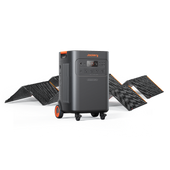











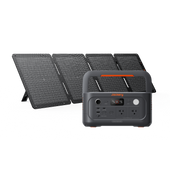



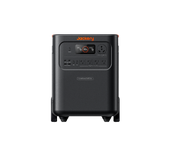
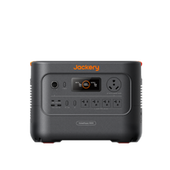





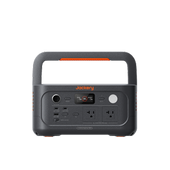





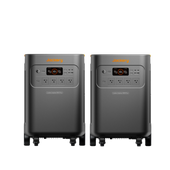
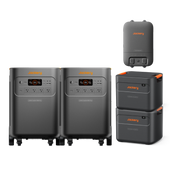





![[Add - on] Jackery Manual Transfer Switch for Explorer 5000 Plus - Jackery](http://www.jackery.com/cdn/shop/files/add-on-jackery-manual-transfer-switch-for-explorer-5000-plus-9017324.png?v=1754016782&width=170)
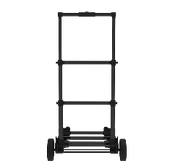
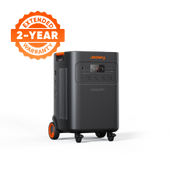
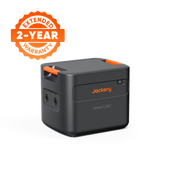
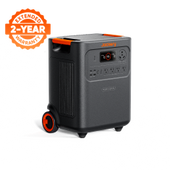
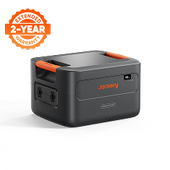
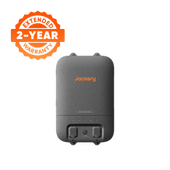



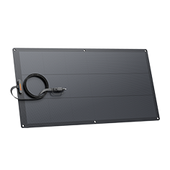
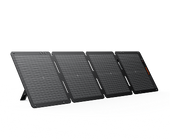




















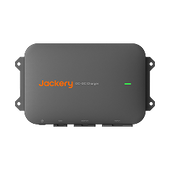




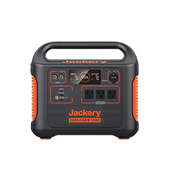






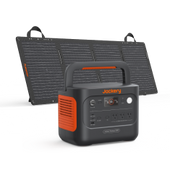
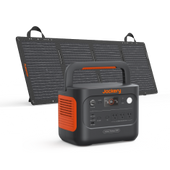






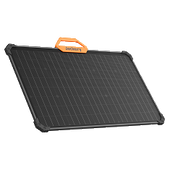

















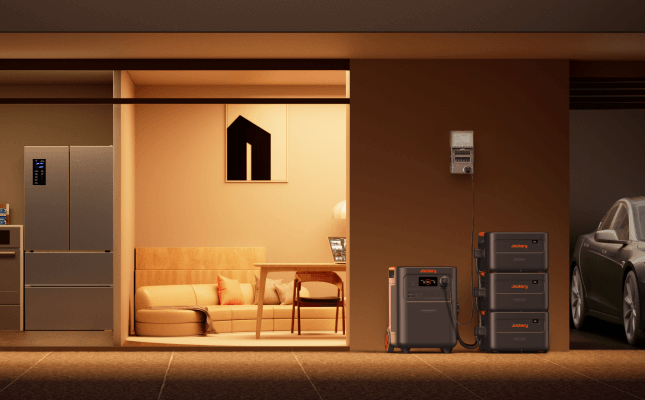


























Leave a comment